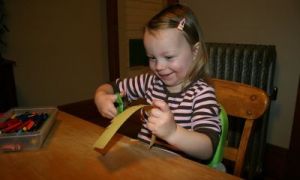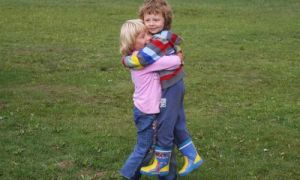Work placement is an excellent opportunity for you to prepare and gain insight into the early childhood industry as well as help you to clarify or confirm your career choice.
As part of your early childhood studies, you will need to complete work placement within an early childhood setting. Work placement is an opportunity for you to obtain hands on experience and observe educators already working in the early childhood industry. It will also give you the chance to experience what it is like to work in an early childhood setting.
Work Placement Hours
When completing both your Certificate III in Children’s Services or Diploma of Children’s Services you will need to fulfill a certain number of work placement hours in order to receive your qualification.
For Certificate III the minimum amount of work placement hours required to complete is 100 hours. For Diploma of Children’s Services the minimum amount of work placement hours to complete is 300 hours. The number of hours may change depending on where you’re studying.
There are many options in how to go about completing your work placement hours. You have an option of doing a block placement (this means completing work placement on consecutive days over duration of a number of weeks), attendance of full, half or partial days within an early childhood setting, doing volunteer work or even finding casual work. If you are already working in an early childhood setting you can also complete your work placement there itself.
If you are completing work placement while working within an early childhood setting, you may need to schedule time out of your normal work hours to complete your assignments and tasks. You need to understand that as an employee it’s your responsibility during work hours to continue your day to day work duties and you may not get on opportunity to complete assignments and tasks required. It is best to discuss and confirm this with the centre director.
Wherever you decide to do your work placement, typically this needs to be pre-approved by your study institution. If you are studying your qualification outside of Australia your work placement must be done in Australia due to the National Regulations and the qualifications work place supervisors must have.
Choosing An Early Childhood Centre For Work Placement
Always pre-plan your work placement a couple of months before it starts, rather than organize it at the last minute. When searching for a centre you may find it difficult to find somewhere to do your work placement. Some study institutions, who organize placements for their students, book centres in advance which may mean you miss out on that particular place.
When organizing your own work placement it’s best to contact childcare centres in your locality and speak to the director. You will need to ask whether or not they take students for work placement, if the centre does its best to make an appointment to go and meet the director personally. When contacting centres you may find that some may not accept work placement students. There could be many reasons for this, don’t take it personally just try somewhere else.
Before Work Placment Begins
Once your work placement is sorted, it’s advisable to go and see the childcare centre of where you will be doing your work placement. During this time, you will meet the staff, have a look around the centre, talk to the director about what you are required to do during your placement, go through any task/assignments to complete, work out your hours, etc. You can also meet the team leader of the room you will be working in and go through the routines, etc.
It’s also recommended that you prepare a brief summary about yourself which also includes a photo of yourself. The director will display this in the room you will be working in. This summary will provide details to families and other members of the community that you are a student currently on work placement at the centre. You can also include the following:
- Your name
- Dates you will be on work placement
- What qualification you are studying
- The institution you are studying with
- A brief description about yourself
- The reason for pursuing a career in Early Childhood
A week before your work placement starts, contact the centre director and confirm your work placement for the following week. It will also be a good idea to clarify any questions or concerns you may have.
This is an opportunity for you to become more fully prepared and know what to expect.
During Work Placement
For the duration of work placement you will be considered as part of the team, where your fellow staff members will support and mentor you throughout the day. You will be given simple duties and tasks to complete such as engaging in children’s play, setting up activities, cleaning up during meal times, reading stories during group time, completing art and craft with the children etc. It’s all part of the day’s work.
Since you are only a student on work placement you will not be left alone with a group of children or counted as part of the ratio, a staff member will always be with you.
You should also be given sufficient time during the day to complete and tasks and assignments you may have. When doing tasks or assignments which require more planning such as setting up a particular environment, observing a child during a specific experience, adding materials to an activity, gathering information from the centre, etc. you should discuss this with your room leader first in order to get sufficient time to complete the task.
Your assessor from your institute will also be paying a visit to you, sometime during your placement, to assess how you are going in regards to your practical tasks. During this time they will observe you while you interact and engage in the environment and make notes on what you have done well or where you can improve. It can be a little nerve wrecking to have someone watch your every move, however your room leader will support you as best they can.
Everyone will be aware that you are there learning as a student so they will provide you with as much help and support as you need.
Tips & Strategies During Work Placement
Below are some tips and strategies to keep in mind while attending work placement:
Staff and Families
- Listen to what your room leader and fellow staffs tell you.
- Show initiative.
- Greet parents with a smile.
- Introduce yourself to families.
- During pick ups, if the room leader is busy talk to parents briefly about what their child did during the day.
- If a parent has questions or concerns with their child, direct them to the room leader.
Personal Attitude
- Behave in a mature manner and use appropriate language.
- Be polite and communicate clearly.
- Have a positive attitude, show interest and enthusiasm.
- Respect the centre’s guidelines, follow policies and procedures.
- Listen carefully and follow all instructions.
- Apply your skills and knowledge where appropriate.
- Show initiative.
Dress Code / Personal Hygiene
- Follow the dress code. Typically smart casual wear such as black long pants and a polo t-shirt. It some centres a uniform may be provided. Wear a name badge (if provided) and pay attention to your personal hygiene.
- Wear a broad brim hat while outside at all times.
- Long hair should be tied up and kept out of your face.
- Remove dangling earrings.
- Cover up tattoos if needed (if they are inappropriate for children).
Attendance
- Be punctual and on time.
- Arrive 15 minutes before your due to start.
- If you are running late, ring the centre and advise them.
- If you are unable attend it’s best to contact the centre director at the earliest to let them know (you will need to make up the time).
Clarifying Matters
- Don’t be afraid to ask questions.
- If you don’t understand something or don’t know what to do ask the room leader.
- If you have any concerns or problems speak to the room leader or centre director.
Health and Safety
- Wash your hands regularly throughout the day.
- Use gloves when handling food, wiping noses etc.
- Report any accidents/incidents to a staff member immediately.
- Clean up spills etc.
- Become familiar with the centre’s health and safety procedures.
After Work Placement
Once you have completed your practical work placement it’s a good idea to speak to the centre director and your room leader about your performance. By this stage, they would have observed you in many different situations and your dealings with children, staff and families. They will be able to provide you with feedback and comments on how you went. This performance review will be helpful and supportive as you learn more about yourself and provide you with insight on where you can improve.
Now that work placement is complete and you have gotten your “feet wet” in the early childhood industry it’s a good idea to reflect on the experiences you've had during the time you spent at work placement. For some of you, you would probably want to begin working in the industry straight away, for others you may need time to contemplate your options.
Whether you are studying your Certificate III or your Diploma of Children’s Services, there will always be a necessity for early childhood educators within the community. Working with children is one of the most fulfilling experiences you can be a part of and a great career choice. Work placement enables an excellent opportunity for a “real hands on” experience in this industry. Good Luck with your endeavours!


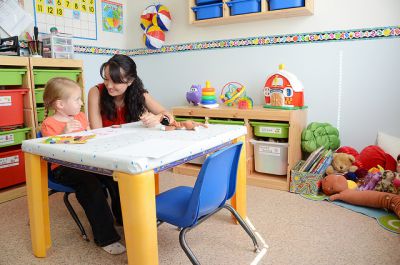

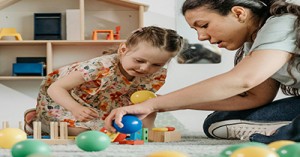


 Whether you are doing a Cert 3 or a Diploma traineeship or thinking about doing a traineeship it’s a good idea to understand what wages
Whether you are doing a Cert 3 or a Diploma traineeship or thinking about doing a traineeship it’s a good idea to understand what wages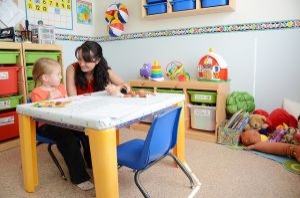 Work placement is an excellent opportunity for you to prepare and gain insight into the early childhood industry as well as help you to clarify
Work placement is an excellent opportunity for you to prepare and gain insight into the early childhood industry as well as help you to clarify Are you thinking of starting a traineeship in childcare? Well from personal experience, working in this child care industry brings great fulfilment and satisfaction. Watching
Are you thinking of starting a traineeship in childcare? Well from personal experience, working in this child care industry brings great fulfilment and satisfaction. Watching There is no truth to the rumour that the certificate III or 'actively working towards' will be phased out.
There is no truth to the rumour that the certificate III or 'actively working towards' will be phased out.
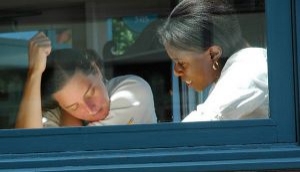 For educators looking to update their qualification and have the required knowledge, experience and skills instead of completing assignments and tasks to complete a qualification
For educators looking to update their qualification and have the required knowledge, experience and skills instead of completing assignments and tasks to complete a qualification As a student finding information and doing research is an important part of completing assignments. Once you find the information you need to complete the
As a student finding information and doing research is an important part of completing assignments. Once you find the information you need to complete the Being a student and completing assessments can be a hard task. Especially when you don’t understand what the question is, you have to write an
Being a student and completing assessments can be a hard task. Especially when you don’t understand what the question is, you have to write an Hiring overseas educators can not only bring a service the benefits of a diverse, multicultural workplace but also address staffing shortage issues. However before an
Hiring overseas educators can not only bring a service the benefits of a diverse, multicultural workplace but also address staffing shortage issues. However before an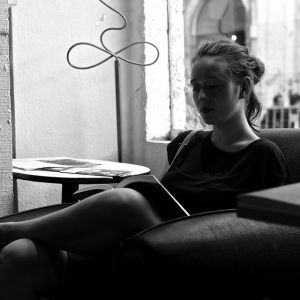 As you take the next big step and decide to continue studying you need to decide whether you will be able to manage working at
As you take the next big step and decide to continue studying you need to decide whether you will be able to manage working at Making the decision to study is a big one. It can be stressful, thinking of how you're going to complete assignments or if you're going
Making the decision to study is a big one. It can be stressful, thinking of how you're going to complete assignments or if you're going